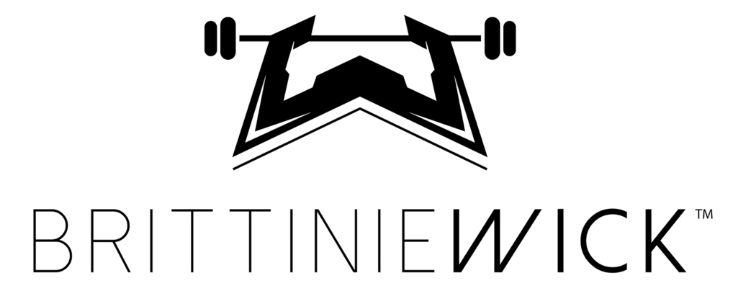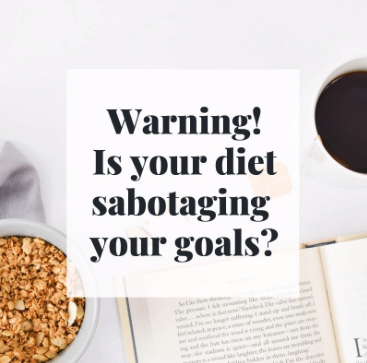
As a health and fitness coach, I constantly see posts about flashy diets, extreme fitness and weight loss shows, and the next best health contraption flash across our TV and phone screens almost daily.
The health and fitness industry is a billion dollar industry that sees people looking to change their eating and exercise habits throughout the year.
Here is the problem with “diets” and the latest fads to hit the media:
Most diets and meal plans are not meant to be long term, and I know you may be thinking “But I WANT a meal plan- you just tell me what to eat so I don’t have to figure it out”.
but, unfortunately, when we try to follow a super specific program or rigid prescription, many things can – and do – go wrong.
✔️ You don’t stick to it like you are supposed to (because we are human and we have lives!)
✔️ You follow it perfectly (but it becomes too strict for too long)
✔️ You follow the plan for a while but don’t really enjoy it so it is not sustainable long term
When I was competing in bikini competitions, I had to follow a very strict meal plan, where I can to measure out all my food. And although I had great success with losing weight, the moment that I could eat something outside my meal plan, I went overboard and gained all my weight back, because I felt deprived of the foods that I love like pizza, and wine.
We tend to want to believe we can sign up for a program or go on a diet and still eat whatever we want, even though we know that hasn’t worked in the past.
And then when it doesn’t work, we like to vilify the diet or program because we don’t want to ask ourselves the hard questions as to why we are not seeing the results that we want.
So we blame the diet when we don’t lose weight.
And then hop to the next diet…especially when it’s trending or if several people had success with it. For example, the keto diet.
If you are relying on a diet to provide you with the exact nutrition plan for your complex body and emotions and you don’t have any input into that decision-making, then you are relying on something external. That external reliance can actually disconnect you from the wisdom of your own mind and body. Although you or someone else has had success with a particular diet, eliminating a macronutrient (whether its carbs, fats, or protein) is unsustainable for the long-term because each one of those has a specific role in your body.
If you have success with a diet and then gain all of the weight back when you go off of the diet, it was not because the diet did not work. It was because you decided to do something different than what you did when you were on the diet. In order to maintain your weight, you must maintain the healthy choices that brought you to that weight.
People who struggle with diet and exercise their whole lives also struggle with understanding hunger cues, how emotions drive their movement and eating decisions, and how stress impacts their bodies.
People who develop healthy relationships with their bodies, food, and fitness have built a foundation through practice. They develop skills and thought processes that allow them to be mindful, pay attention to their emotions, and tune into their body’s signals.
Regardless of which nutrition or fitness plan you follow, you need to make it a priority, do the hard work (yes, this is not easy!), and stay consistent.
You have to show up again and again and again (and again).
Success is not sudden or immediate.
Jumping ahead and trying to do too much, too soon can lead to injury, frustration, or burnout. This is why it’s so important to focus on the process…on the very act of doing the work itself.
The only thing we have a direct effect on is NOW.
So, let’s stop jumping from diet to diet.
Let’s find what works for your unique body and is sustainable.
Ask yourself… “Could I eat this way next month? Next year?”
It has to be sustainable, otherwise it won’t last.
But most diets and meal plans are typically not sustainable long term.
And let’s be real for a second…
Changing how we eat is hard.
But if we want to make a lasting change, we need to stop blindly following the latest diets and start understanding our own unique bodies, how we feed about food, and which foods are actually beneficial to us.
Here is the KEY: Think about what you already eat and how you can make it a little better!
Make small changes to what you normally eat and enjoy – ONE SMALL STEP AT A TIME!
The goal is to eat in moderation and still be satisfied by your meal.
So if you are not satisfied by your meals, find the middle ground that makes your meal still some-what healthy and enjoyable. You do NOT have to eat foods you hate – you should enjoy your meals.
So to get started, fill out a food journal for one week. Write down everything that you eat and drink. After the week (or if a week is too long, just do a few days), take a look at your meals and ask yourself “How can I make this meal healthier?” You want to make healthy swaps where you can, like aiming to include protein in each meal, adding veggies and fruit, eating less processed foods and adding more nutrient-dense foods, drinking more water, etc. Start with one meal and just try one or two of those options. See which works best for you. Then eventually start slowly adding in the other healthy swaps.
If you’re interested in learning more on how to ditch the diet mentality and learn how to create sustainable, healthy habits, check out my “12 Week Nutrition Coaching” and/or my “Change Your Mind, Change Your Body” courses! Message me if you have any questions!




Leave a Comment